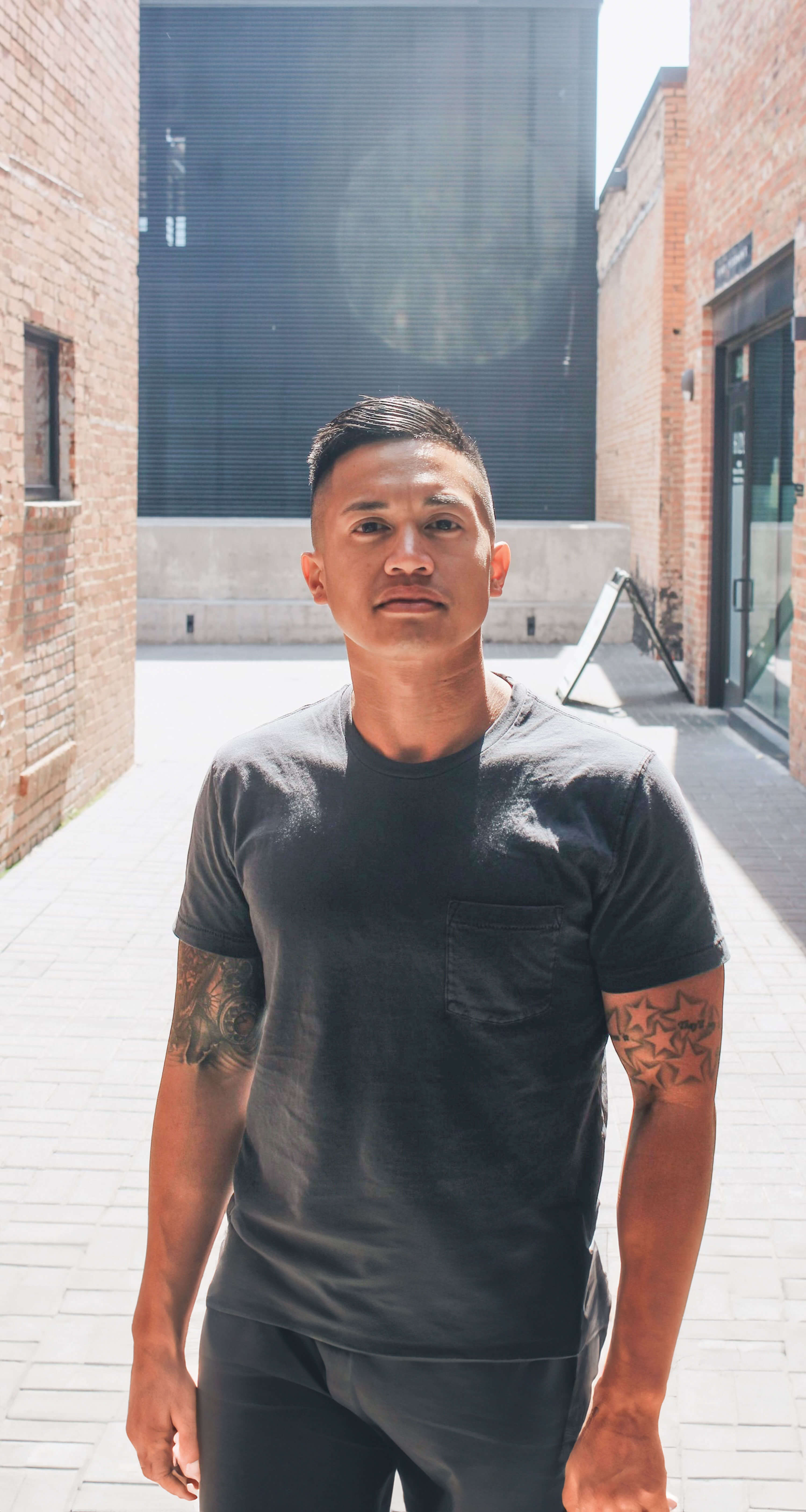
The Good Fight
If you told 18-year-old me that I’d be writing a book in my 30s, I wouldn’t have believed you.
The truth is, at that time, I had little direction in life and no solid plans for the future. What I did know for sure was that I wanted to be part of something bigger than myself. So, after graduating high school, I signed up to be a corpsman with the U.S. Navy. Being a Navy corpsman is like being an EMT in a combat zone—you’re the first responder when someone gets hurt. I carried the wounded, dressed them with bandages, applied tourniquets to control bleeding, and inserted IVs, all right on the battlefield. I served with the 3rd Marine Division in Kāne‘ohe Bay, Hawaii, and from 2004 to 2007 deployed to Afghanistan and Iraq.
That time of my life was marked by many ups and downs. On the one hand, I discovered my passion for nursing. On the other, my service was defined in many ways by the loss of three of my closest friends, all within the span of four months. When it was time for me to leave Hawaii, I decided I wanted to get as far away from the island as possible. There were too many haunting memories for me there.
I was assigned to a duty station in Lakehurst, New Jersey, and if that sounds mundane, it’s because it was. I worked in a small clinic administering vaccines and medications, recordkeeping, and seeing general cases. It was just what I needed.
As my time in the military wound down, my trauma became my motivation. I decided I was going to live my life for the friends I had lost, and I hit the ground running. I left the military in 2009 and, for years, I kept busy working 12-hour shifts while earning an associate’s degree from Ocean County College, a bachelor’s degree from Kean University, a master’s degree from Monmouth, and a license to practice as a family nurse practitioner.
As long as I was busy, I wasn’t faced with the guilt I had for surviving the war when my friends hadn’t. But the reality is that I was running from my grief.
It took going to therapy (finally, at the behest of my wife) to face the complicated emotions I had been suppressing for years. My therapist encouraged me to start writing down my thoughts. I’ll admit, I hesitated. But eventually I gave it a shot, jotting down notes on my phone, then putting pen to paper. Before I knew it, my thoughts were flooding out of me.
Those thoughts and experiences became my memoir, “Just Glow,” which will be published later this year. The book is about grief, naivete, fear, growing up, and finding myself transformed. I hope that it will memorialize my friends. I hope, too, that it will help others confront and manage their own grief. And I hope it will help readers understand that there are true and deep emotions even (and perhaps especially) in the depths of war, and that for many service members, the battle of the mind wages on long after they’ve left the battlefield— that is, if they’re willing to fight.